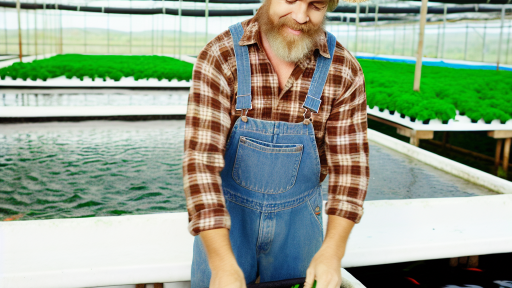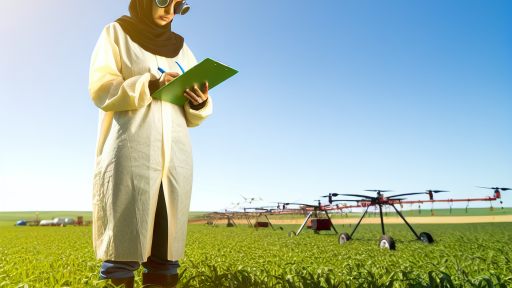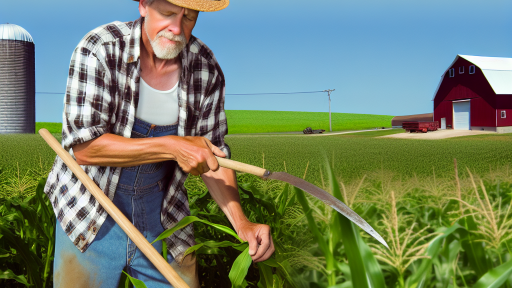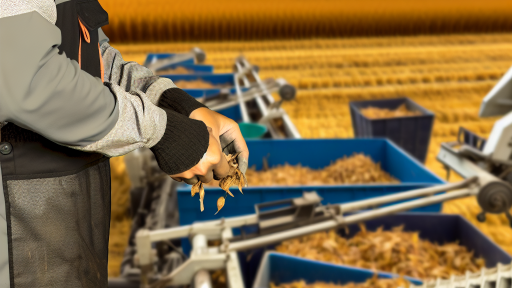Understanding Organic Seed Certification Standards
Importance of Organic Certification
Organic certification assures that seeds meet strict agricultural standards.
It guarantees they are free from synthetic pesticides and fertilizers.
Choosing certified seeds supports sustainable farming practices.
Certification Bodies and Their Roles
Various organizations oversee organic seed certification.
The USDA National Organic Program is one key authority.
Additionally, private organizations like Oregon Tilth provide certification.
Each body follows specific guidelines to ensure compliance.
Key Certification Standards
Organic seeds must originate from organically grown plants.
Genetic modification is strictly prohibited.
These seeds should be produced without synthetic treatments.
Farmers must maintain detailed records for accountability.
Choosing the Right Seeds
Selecting the right certified seeds is crucial for successful farming.
Evaluate requirements based on crop type and local conditions.
Pay attention to germination rates and disease resistance.
Consult with local agricultural extension services for guidance.
Transform Your Agribusiness
Unlock your farm's potential with expert advice tailored to your needs. Get actionable steps that drive real results.
Get StartedFactors to Consider When Selecting Organic Seeds
Seed Quality
Seed quality directly influences the success of your farm.
Choose seeds that are certified organic for the best results.
Check for high germination rates before making a purchase.
Moreover, inspect seeds for any signs of disease or damage.
Local Adaptation
Local climate and soil conditions play crucial roles in plant growth.
Select seeds that are adapted to your specific region.
Consider consulting local agricultural experts for guidance.
This will help ensure better yield and resilience against pests.
Pest Resistance
Choosing pest-resistant seeds can save time and resources.
These seeds require less chemical intervention from you.
Research varieties known for their pest-resistant traits.
Such choices will lead to healthier plants and ecosystems.
Crop Rotation and Diversity
Incorporate diverse crops in your garden to enhance soil health.
Choose seeds that facilitate crop rotation for sustainability.
Rotating crops can reduce disease and pest buildup in the soil.
Furthermore, diversity promotes beneficial insect populations.
Seed Sources
Always buy seeds from reputable sources to ensure quality.
Consider local seed companies that specialize in organic varieties.
Check customer reviews and their certification status.
Local farms may also offer seeds that perform well in your area.
Cost and Availability
While organic seeds may cost more, their benefits often outweigh the price.
Look for seeds that fit your budget while meeting quality standards.
Explore bulk purchasing options to save money long term.
Additionally, keep an eye on seasonal sales or discounts.
Showcase Your Farming Business
Publish your professional farming services profile on our blog for a one-time fee of $200 and reach a dedicated audience of farmers and agribusiness owners.
Publish Your ProfileTop Varieties of Organic Seeds for Different Crops
Vegetables
Organic seed varieties for vegetables offer flavors and nutritional benefits.
Popular choices include heirloom tomatoes and diverse bean types.
These varieties thrive in organic conditions without synthetic fertilizers.
Consider planting varieties like ‘Cherokee Purple’ tomatoes for rich flavor.
In addition, ‘Blue Lake’ green beans produce abundant harvests.
Fruits
Organic fruit seeds provide sweetness and vibrant flavors in your garden.
Strawberries and melons are excellent organic fruit options.
They require well-drained soil and adequate sunlight for best growth.
Try growing ‘Earliglow’ strawberries for early-season fruit.
Additionally, ‘Sugar Baby’ watermelons offer tasty, compact fruits.
Herbs
Organic herbs contribute flavor and aroma to dishes.
Popular organic herbs include basil, cilantro, and parsley.
Basil thrives in warm weather and enhances many culinary creations.
Cilantro adds a fresh zest to salsas and salads.
Also, consider growing ‘Flat-leaf’ parsley for its robust flavor.
Grains
Organic seed varieties for grains help promote self-sufficiency.
Heirloom varieties, such as ‘Red Fife’ wheat, are great choices.
This variety yields high-quality flour for baking needs.
Oats and barley also grow well in organic systems.
Choose ‘Hulled Barley’ for its health benefits and versatility.
Flowers
Organic flower seeds attract pollinators and enhance your farm’s beauty.
Native wildflowers and zinnias are popular organic flower selections.
These plants support local ecosystems and require minimal maintenance.
Consider planting ‘Classic Red’ zinnias for vibrant color displays.
Additionally, sunflowers can add height and cheer to your garden.
See Related Content: Climate-Smart Practices in Organic Crop Cultivation
Where to Purchase Quality Organic Seeds
Local Garden Centers and Nurseries
Local garden centers often offer organic seeds from trusted sources.
You can receive personalized advice from knowledgeable staff.
This makes it easy to find seeds that thrive in your specific climate.
Additionally, you support local businesses by shopping here.
Farmers’ Markets
Farmers’ markets are excellent venues for purchasing organic seeds.
You can buy directly from local farmers who practice organic farming.
Thus, you gain insight into the seeds’ growing conditions.
Many vendors also offer heirloom varieties that are hard to find elsewhere.
Online Retailers
Online retailers provide a vast selection of organic seeds.
You can easily compare prices and varieties from different suppliers.
Moreover, many websites offer customer reviews that guide your purchasing decisions.
Be sure to check for certifications to ensure quality.
Seed Exchange Networks
Joining seed exchange networks fosters community engagement.
Such platforms allow you to trade seeds with other gardeners.
Showcase Your Farming Business
Publish your professional farming services profile on our blog for a one-time fee of $200 and reach a dedicated audience of farmers and agribusiness owners.
Publish Your ProfileThis exchange promotes biodiversity and helps preserve heirloom varieties.
You can learn from experienced gardeners when participating in these networks.
Co-ops and Agricultural Associations
Co-ops and agricultural associations often provide access to organic seeds.
You can usually find seeds that are regionally adapted for better performance.
Additionally, members can often access bulk buying options, lowering costs.
Consider becoming a member to enjoy exclusive benefits.
See Related Content: Enhancing Crop Growth With Data Analytics
The Importance of Local Adaptation in Seed Selection
Understanding Local Adaptation
Local adaptation refers to the ability of plants to thrive in specific conditions.
This concept hinges on climate, soil type, and local pests.
Plants that evolve in a particular region develop traits suited to that environment.
Consequently, selecting locally adapted seeds increases the chance of successful growth.
Benefits of Using Local Seeds
Using local seeds has several advantages for farmers.
- They are often more resilient to local pests and diseases.
- They require fewer resources, such as water and fertilizers.
- Local seeds can improve yields due to their compatibility with local conditions.
Moreover, they contribute to biodiversity within the ecosystem.
Factors Influencing Local Adaptation
Several factors contribute to the local adaptation of seeds.
- Climate: Temperature and rainfall patterns significantly affect plant growth.
- Soil Quality: Soil composition impacts nutrient availability for plants.
- Local Pests: Familiarity with regional pest populations can enhance resistance.
Understanding these factors helps in selecting the best seeds for your farm.
Researching Local Seed Options
Investigate which seeds thrive in your area before making a purchase.
Connect with local farmers to exchange insights and experiences.
Local agricultural extensions often provide helpful resources and guidance.
Another option is to visit seed exchanges or markets that feature regional varieties.
Choosing Locally Adapted Seeds
Choosing seeds that are adapted to your local environment is crucial.
It not only supports healthy plants but also enhances farm sustainability.
Incorporating local seeds contributes to the resilience of farming systems.
Gain More Insights: Best Practices for Post-Harvest Crop Handling
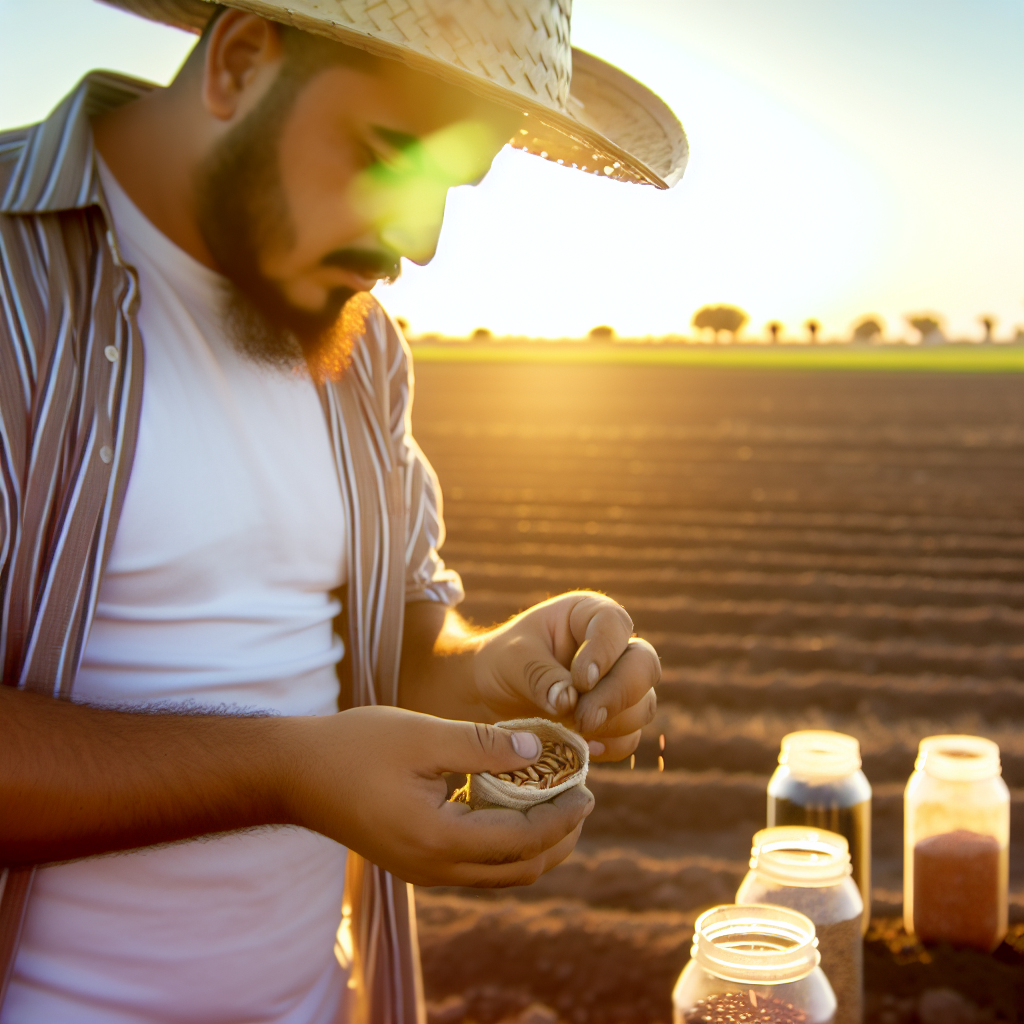
How to Evaluate Seed Quality and Viability
Understanding Seed Quality
Evaluating seed quality begins with understanding its attributes.
High-quality seeds are crucial for successful farming.
They provide better germination and yield rates.
Therefore, selecting the best seeds can significantly impact your harvest.
Checking Seed Viability
Seed viability determines whether seeds can successfully germinate.
One way to test this is through the water test.
Simply soak seeds in water for 24 hours.
Then, observe how many seeds float versus how many sink.
Floating seeds are often unviable, while sinking seeds are more likely to germinate.
Seed Size and Shape
The size and shape of seeds can indicate quality.
Larger seeds typically have more stored energy.
This energy helps with successful germination.
Moreover, seeds with uniform shape often have higher viability.
Age of the Seeds
Seed age plays a vital role in determining quality.
Older seeds tend to have reduced viability rates.
Therefore, always check the packaging for the harvest date.
Using fresh seeds ensures better results in your farming endeavors.
Showcase Your Farming Business
Publish your professional farming services profile on our blog for a one-time fee of $200 and reach a dedicated audience of farmers and agribusiness owners.
Publish Your ProfileStorage Conditions
How seeds are stored affects their quality over time.
Seeds should ideally be kept in a cool and dry place.
Excess moisture and heat can lead to deterioration.
Regularly inspect your seed storage for signs of mold or pests.
Fungicide and Insecticide Treatment
Some seeds come treated with fungicides or insecticides.
These treatments can enhance seed performance.
However, ensure these chemicals align with your organic farming methods.
Consider using natural pest control methods if possible.
Genetic Traits
Understand the genetic traits of seed varieties you choose.
Some varieties may show drought resistance or pest tolerance.
This can be crucial for maintaining healthy crops.
Research extensively or consult experts when selecting seeds.
Gain More Insights: Designing an Aquaponics Farm
Common Mistakes to Avoid When Choosing Organic Seeds
Ignoring Local Climate and Soil Conditions
Choosing seeds without considering your local climate is a common mistake.
This can lead to poor germination rates and weak plants.
Always research the climate needs of each variety.
Also, understand your soil type and how it affects growth.
Failing to Research Seed Suppliers
Many farmers overlook the importance of reputable seed suppliers.
Not all suppliers provide high-quality organic seeds.
Look for suppliers with positive reviews and certifications.
Ask local farmers about their experiences with seed sources.
Neglecting to Consider Seed Variety
Choosing the wrong seed variety can hinder your farming success.
Some varieties are better suited for specific growing conditions.
Take time to explore different varieties available in your area.
Focus on those that thrive in your unique environment.
Overlooking the Importance of Genetic Diversity
Lack of genetic diversity can lead to crop failures.
A diverse selection helps protect against pests and diseases.
Mixing seed varieties enhances resilience in your crops.
Avoid relying solely on one type of seed for your farm.
Underestimating Seed Quality
Seed quality is crucial for successful farming.
Low-quality seeds often result in poor yield and crops.
Examine seeds for signs of damage or disease before purchasing.
Quality seeds will significantly impact your farm productivity.
Not Asking for Expert Advice
Failing to seek advice from agricultural experts is a missed opportunity.
Consult extension agents or experienced farmers for insights.
They can provide guidance on the best seeds for your location.
Don’t hesitate to ask for recommendations or tips.
Forgetting About Seed Storage and Longevity
Many farmers neglect proper seed storage practices.
Storing seeds incorrectly can reduce their viability.
Ensure that seeds are kept in a cool, dry place.
Showcase Your Farming Business
Publish your professional farming services profile on our blog for a one-time fee of $200 and reach a dedicated audience of farmers and agribusiness owners.
Publish Your ProfileRegularly check for signs of moisture or pest damage.
Best Practices for Storing and Germinating Organic Seeds
Understanding Seed Storage
Proper seed storage ensures optimal germination rates.
Start by keeping seeds in a cool, dry place.
This method prevents moisture and mold from developing.
Use airtight containers to safeguard seeds from pests.
Label containers clearly with seed varieties and dates.
Ideal Storage Conditions
Humidity levels must remain low for preserving seeds.
A relative humidity of 20% is ideal for most seeds.
Store seeds at temperatures between 32°F to 41°F.
Regularly check stored seeds for any signs of spoilage.
Germinating Organic Seeds
Start germinating seeds follow specific techniques.
Begin with high-quality, organic soil for planting.
Use pots or trays that offer good drainage.
Plant seeds at the recommended depth and spacing.
Watering and Light Requirements
Water seeds gently to avoid displacing them.
Keep the soil consistently moist but not oversaturated.
Provide sufficient light, either natural or artificial.
For most seeds, 12 to 16 hours of light is sufficient.
Monitoring Germination Progress
Check for signs of sprouting within a week or two.
Maintain a warm environment for optimal growth.
Thinning seedlings is necessary to avoid overcrowding.
This practice helps each plant grow robustly.
Common Germination Issues
Sometimes, seeds fail to germinate as expected.
Inspect the soil’s moisture level if growth stalls.
Temperature fluctuations can also affect germination.
Consider testing seeds for viability before planting.
Additional Resources
Understanding Cover Crops |The Basics and Beyond | joe gardener®

